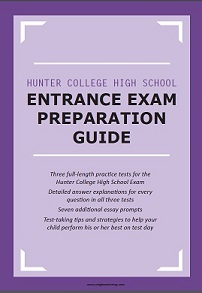Is a Private High School Right for My Child?
/The end of the New York City public school year is just one month away. Students across the city are dreaming of summer and making plans to go to camp, take on a part-time summer job, or travel with their families. For many students, summer plans also include touring independent schools and collecting application materials. The decision to switch from a public to an independent school is one that requires a lot of careful thought well before the application process begins. Some parents and students may have a tough time deciding whether independent school is the right choice, so let’s look at some points to consider.
A Flexible Curriculum
One of the biggest benefits of independent schools is that they are free from federal regulations, so teachers don’t have to waste valuable classroom time teaching students how to take certain tests. That time can be used for more elective classes that are tailored to the interests of the students. Many independent schools have a specialized focus for students, such as foreign language immersion, that extends throughout the students’ entire educational experience. Teachers in independent schools are generally given more control over the selection of materials, school policies, and academic goals in their subject area. However, that is not to imply that the curriculum is less rigid. On the contrary, students at independent schools tend to have more advanced level math and science course requirements for graduation than do students in public schools. Graduation requirements also tend to include more community service and long-term project work. Finally, this flexibility extends to the power that you as a parent are able to have over your child’s education. Parental involvement in independent schools is, on average, ten percent higher than it is in public schools. At an independent school, you become a paying customer who will really be heard by teachers and administrators when you voice your concerns, because the hands of the school staff aren’t tied by regulations. An additional advantage of independent schools is that for parents for whom religion is a priority, religion can be incorporated into the curriculum.
More Individualized Attention
Class sizes in independent schools tend to be smaller than those in public schools, which means that students receive more attention. Teacher to student ratios are often as low as 10:1 in independent schools. And receiving more attention means so much more than just being able to get help with academic work. Students form closer bonds with their teachers and look to them more as mentors than simply educators. There are fewer disciplinary issues in small classrooms, and when disciplinary problem do occur, they can be handled in a much more productive way because the teachers and administrators really know the students. In addition, students in smaller classes are able to engage in a greater variety of activities; they do more small-group work and more intensive hands-on and experiential learning activities. One caveat – if you are the parents of a special needs child, make sure that your child’s needs are a major part of the discussion you have with school administrators and admissions staff. Public schools are required by law to accommodate disabilities, but independent schools are not. Of course, most independent schools do offer services for students with special needs, but those services might come at an extra cost.
Academic Achievement
Are you still not convinced? One final motivator – numerous studies conducted in the past decade all point to the same fact. Students who attend independent schools perform better academically than those who do not. Importantly, they perform better on achievement tests, such as the SAT, that are an important component of college admissions and a reliable indicator (when combined with high-school grades) of success for the first year of college.). True, there is some debate as to whether the schools play a role in more adequately preparing students for these tests or whether students who tend to be high academic achievers on their own constitute a majority of the students in independent schools, but perhaps the distinction doesn’t matter. Young children and teenagers are greatly influenced by their peers, so enrolling them in an academic environment where they are constantly surrounded by high achievers can only prove beneficial.
Seven of the top twenty independent schools in the nation (as ranked by Forbes) are located in New York City. In addition, there are many more excellent independent schools located in the five boroughs. If you and your child have been on the fence about whether an independent school is the right choice, the next few months are great time to start exploring the options.

